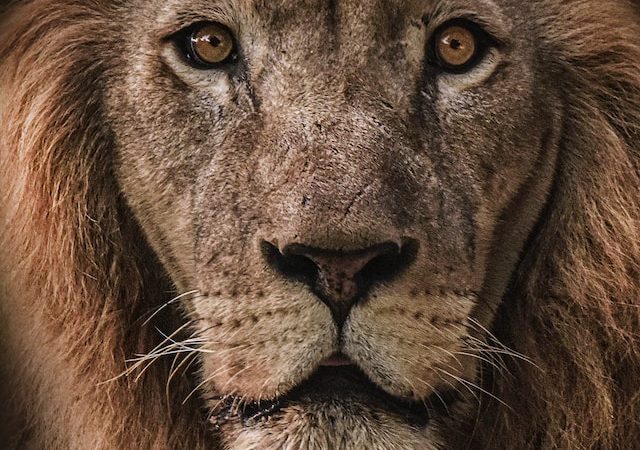Lions, the majestic kings of the savanna, embody strength and resilience. However, these regal creatures face a myriad of health challenges in their natural habitats and in captivity. One crucial aspect of lion health management lies in the timely diagnosis of illnesses and conditions. Today, we delve into the importance of early diagnosis in ensuring
Lions, the majestic kings of the savanna, embody strength and resilience. However, these regal creatures face a myriad of health challenges in their natural habitats and in captivity. One crucial aspect of lion health management lies in the timely diagnosis of illnesses and conditions. Today, we delve into the importance of early diagnosis in ensuring the well-being and conservation of these magnificent beasts.
Early diagnosis plays a pivotal role in mitigating the impact of diseases and conditions that afflict lions. Many health issues, if left undetected or untreated, can lead to severe consequences, including life-threatening complications or permanent damage. By identifying and addressing health concerns at their earliest stages, veterinarians can intervene effectively and implement appropriate treatment plans.
In the realm of lion health, infectious diseases pose significant threats to both wild and captive populations. Feline immunodeficiency virus (FIV), feline leukemia virus (FeLV), and tuberculosis are among the common infectious diseases that affect lions. Early detection through regular health screenings and diagnostic tests is crucial in preventing the spread of these diseases within lion populations. It enables veterinarians to isolate infected individuals, administer targeted treatments, and implement preventive measures to minimize the impact on the overall population.
Genetic disorders also necessitate early diagnosis to ensure appropriate management and intervention. Lions in small and isolated populations are at higher risk of inheriting genetic abnormalities due to inbreeding. Conditions such as heart defects, muscular dystrophy, and neurological disorders can have profound implications for lion health and well-being. Early identification of affected individuals enables veterinarians and conservationists to provide specialized care, implement breeding programs to reduce the prevalence of these disorders, and prevent the passing of genetic abnormalities to future generations.
Furthermore, early diagnosis plays a crucial role in managing dental problems, which are common among lions. In the wild, their diet consists of tough and fibrous meat, leading to dental wear, tooth fractures, and infections. In captivity, inadequate diets and lack of proper dental care exacerbate these issues. Early recognition and treatment of dental problems are essential to alleviate pain, prevent further damage, and ensure the lion’s ability to eat and survive in its natural habitat.
Advancements in diagnostic techniques have significantly improved early detection capabilities for lion health management. Veterinarians employ a range of tools, including radiography, ultrasound, blood tests, and fecal analysis, to assess the health status of lions. These diagnostic methods aid in identifying signs of infection, detecting abnormalities in organs or tissues, and analyzing biomarkers that indicate the presence of specific diseases.
In recent years, veterinarians have also embraced innovative approaches to lion health monitoring. Remote sensing technology, such as camera traps and drones, allows for non-invasive observation and data collection. By monitoring lion behavior, body condition, and physical attributes, researchers can identify potential health concerns and intervene promptly. This technology offers a less intrusive means of monitoring and ensures minimal disturbance to the natural behaviors of these majestic creatures.
The significance of early diagnosis in lion health management extends beyond individual animals. It has profound implications for the conservation of lion populations and their ecosystems. By addressing health concerns early on, veterinarians and conservationists can enhance the overall well-being and genetic diversity of lion populations, contributing to their long-term survival and ecological balance.
In conclusion, early diagnosis is a cornerstone of effective lion health management. From detecting infectious diseases and genetic disorders to addressing dental issues, timely diagnosis enables veterinarians to implement targeted treatments and preventive measures. Through advancements in diagnostic techniques and the use of innovative tools, we are better equipped than ever to safeguard the well-being of lions and ensure the preservation of these iconic creatures for generations to come.

















Leave a Comment
Your email address will not be published. Required fields are marked with *